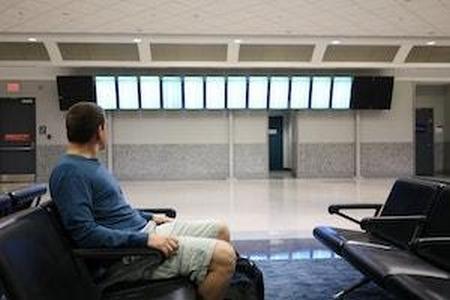What Do I Do If I Am Detained at the Airport?
 Since late January 2017, various iterations of an executive order on immigration have been in force at all U.S. ports of entry, but have seen the most controversy at airports. The most recent permutation as of this writing, after input from the Supreme Court in the form of an unsigned opinion, excludes non-citizen nationals from seven majority Muslim countries—Iraq, Iran, Libya, Sudan, Somalia, Syria and Yemen—unless they can prove a “bona fide relationship” to any “person or entity” in the United States.
Since late January 2017, various iterations of an executive order on immigration have been in force at all U.S. ports of entry, but have seen the most controversy at airports. The most recent permutation as of this writing, after input from the Supreme Court in the form of an unsigned opinion, excludes non-citizen nationals from seven majority Muslim countries—Iraq, Iran, Libya, Sudan, Somalia, Syria and Yemen—unless they can prove a “bona fide relationship” to any “person or entity” in the United States.
However, the opinion does not define such a standard, which means that the definition is largely being left up to immigration personnel on the ground. This can cause problems for travelers, even if you are not a national of one of the seven countries on the president’s “list.”
Initial Detention
When someone is stopped upon deplaning, he or she may merely be detained a couple of minutes, or he or she may be placed into what Customs & Border Patrol (CBP) euphemistically calls secondary screening. At either level, you may be questioned by CBP, or by personnel from a host of different agencies, such as the Federal Bureau of Investigation (FBI) or Immigration & Customs Enforcement (ICE).
The agent who questions you has fairly broad leeway in terms of what he or she asks; he or she may inquire about immigration status, about your trip, or anything reasonable as long as it is not being done with a discriminatory purpose, though it is extremely difficult to prove all but the most flagrant examples of discrimination.
It is important to keep in mind that at least as of this writing, CBP also has authority to search any and all baggage, even after it has gone through security screening.
Another practice reported in recent months has been an enormous increase—approximately 460 percent higher in 2016 than in 2015—in searches of laptop computers and tablets, despite the acknowledged existence of attorney-client privilege and privacy rights in some circuits which would normally put an end to such practices. You may be asked to unlock your phone or computer. Yet while you may refuse, CBP may then detain you longer, or if you are not a citizen or green card holder, they may deny your entry into the U.S., regardless of a ‘bona fide’ relationship.
“Secondary Screening”
If you are selected for further screening after the initial interview, the suggested plan of action is going to differ somewhat depending on your immigration status. If you are a U.S. citizen, you have the absolute right to enter the country. However, lawful permanent residents (green card holders) and non-citizen visa holders may face higher stakes if they refuse to answer questions. If, however, you feel the questions are becoming inappropriate or discriminatory, a complaint should be made—it is a violation of your rights to hold you or otherwise treat you differently solely based on your ethnicity or immigration status.
While CBP is of the opinion that you are not entitled to an attorney while in screening, you may state your intent to call one if you feel you are being held for an unreasonably long time or if you are moved from the screening area. If you are told that you are under arrest, it is generally a good idea to say nothing until you have obtained the services of an attorney, because anything from that point onward may be used against you in proceedings.
It is also somewhat common—more so in recent months—for detainees to not be informed of their rights until absolutely necessary, if ever, which can make obtaining legal help difficult. Understanding your rights beforehand can be critical.
Contact an Immigration Lawyer
In a country where the rules for good behavior seem to be constantly changing, it is very understandable to be nervous about going through an airport—especially if flying is unavoidable or if you hail from one of the blacklisted seven countries. Contacting a knowledgeable immigration attorney can make a difference, and at the very least, may help set your mind at ease. The dedicated Chicagoland immigration attorneys at Mevorah & Giglio Law Offices are proud to put our resources and experiences to work for you. Call us today to set up an appointment.
Source:
http://www.cnn.com/2017/06/26/politics/travel-ban-supreme-court/index.html
 English,
English,
 Spanish,
Spanish,
 Polish,
Polish,
 Urdu
Urdu













 Make a Payment
Make a Payment



